Prøve GULL - Gratis
Deutsche Bank's Crash Diet
Bloomberg Markets
|December 2019 - January 2020
Chief Executive Officer Christian Sewing is slashing businesses in a bid to save the 150-year-old megabank
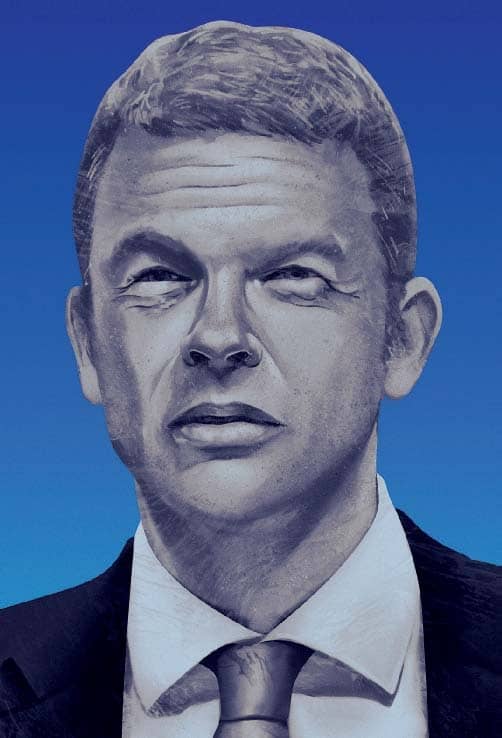
CHRISTIAN SEWING’S SHOCK WAS plain to see, the color draining from his face. The chief executive officer of Deutsche Bank AG had just unveiled his long-awaited plan to fix the troubled lender. It included a retreat from equities trading, a focus on corporate banking, and the elimination of 18,000 jobs, a fifth of the workforce. To underscore his conviction, he’d even pledged to invest a chunk of his own pay in Deutsche Bank stock every month.
Then he checked his phone. The shares were in free-fall; they lost as much as 7.3% that day, July 8, and tumbled again on July 9. Shareholders had reached the same, grim verdict: Sewing’s goals were unrealistic for a bank that had consistently disappointed investors. His plan continued to rely on a global investment bank with shrinking revenue and a low-profit retail bank in a home market plagued by fierce competition and negative interest rates.
It was a sucker punch for the former risk manager. Sewing had spent his entire first year as CEO building up to this moment. He’d purged the management board of dissenters, wooed regulators and investors. He’d rejected an alternative strategy that some key stakeholders favored: merging with Deutsche Bank’s German rival, Commerzbank AG. But the market reaction was a reminder that if his strategy was going to work, it wouldn’t happen quickly, and there was no room for error.
History contains innumerable examples of corporate giants struggling to adapt to a changing world. What makes Deutsche Bank’s story particularly resonant is not just that the risks involve a systemically important bank with a €1.5 trillion ($1.66 trillion) balance sheet. It’s also the way the bank’s fate follows the trajectory of corporate globalization over the last three decades.
Denne historien er fra December 2019 - January 2020-utgaven av Bloomberg Markets.
Abonner på Magzter GOLD for å få tilgang til tusenvis av kuraterte premiumhistorier og over 9000 magasiner og aviser.
Allerede abonnent? Logg på
FLERE HISTORIER FRA Bloomberg Markets
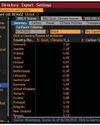
Bloomberg Markets
See Which Countries Are Falling Behind On Climate Change
Under the Paris Agreement, 190 countries and the European Union pledged to take steps to hold the global temperature rise to less than 2C (3.6F) from preindustrial levels—and preferably 1.5C.
4 mins
October - November 2021
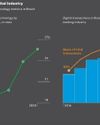
Bloomberg Markets
Billionaires Vie for the Future of Brazilian Finance
An escalating battle between two billionaires is upending the financial community in São Paulo, Latin America’s wealthiest city.
8 mins
October - November 2021

Bloomberg Markets
Ford Foundation's Darren Walker: ‘We Have to Get Uncomfortable'
DARREN WALKER, 62, disrupted his Wall Street life more than 25 years ago when he left what is now UBS Group AG to volunteer at a school and eventually pursue a career in community development and philanthropy. Since 2013 he’s been at the pinnacle of the philanthropic world as president of the Ford Foundation, created by the family of automaker Henry Ford during the Great Depression to advance human welfare.
8 mins
October - November 2021

Bloomberg Markets
Fueling the Ener Transition
I MAY BE BIASED, but some of the most important research and data on the Bloomberg terminal lies in one of its lesser-known functions: {BNEF }
1 mins
October - November 2021
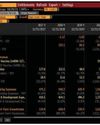
Bloomberg Markets
Dig Into Analysts' Estimates for Disruptive Companies
THE PANDEMIC ERA generated a whole wave of disruptive companies as it accelerated the introduction of new products and services in areas including artificial intelligence, digitization, electronic payments, online meeting platforms, and virtual currencies.
4 mins
October - November 2021
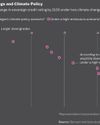
Bloomberg Markets
Climate Risks Come for Sovereign Credit
FOR YEARS climate scientists have warned about the ferocious wildfires and hurricanes that are now overwhelming many communities. Today alarms are ringing about a related financial danger: risks lurking within government bonds, the biggest part of the global debt market.
7 mins
October - November 2021

Bloomberg Markets
Responsible-Investing Pioneer Lydenberg Says ESG Needs An Upgrade
STEVE LYDENBERG’S passion for social change was inspired by anti-Vietnam War demonstrations, consumer boycotts, and the movement to divest from apartheid South Africa. But he didn’t take to the streets. Instead, Lydenberg turned to the world of finance to help catalyze societal change.
8 mins
October - November 2021

Bloomberg Markets
Engine No. 1's Grancio: ‘People Will Appreciate an Economic Argument'
ENGINE NO. 1 sent shock waves across corporate America in May when the fledgling investment firm won a boardroom battle with Exxon Mobil Corp., securing three seats on the oil and gas giant’s board after purchasing only about $40 million of its stock.
6 mins
October - November 2021
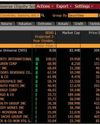
Bloomberg Markets
Find Out Which Companies May Ramp Up Payouts After Covid
AS THE PANDEMIC DISRUPTED business last year, many companies cut or suspended dividends. Which will boost their payouts when economies pick up again?
2 mins
October - November 2021
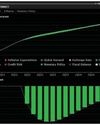
Bloomberg Markets
Get Into the Minds of Central Bankers as They Navigate Shocks
HAVE YOU EVER WONDERED how central bankers forecast the impact of shocks on the economy?
4 mins
October - November 2021
Translate
Change font size
